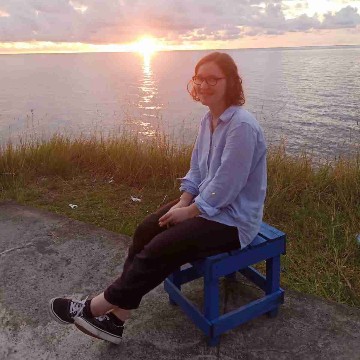Native Tongue
Jetzt kaufen
Durch das Verwenden dieser Links unterstützt du READO. Wir erhalten eine Vermittlungsprovision, ohne dass dir zusätzliche Kosten entstehen.
Beschreibung
Beiträge
Suzette H. Elgin setzt sich in ihrem Buch einerseits mit der dystopischen Vorstellung eines absoluten Patriachats auseinander. Anderseits konstruiert sie ihre Geschichte um zwei bedeutende, aber stark umstrittene linguistische Theorien: Die „Universal Grammar“ nach Noam Chomsky und der „sprachliche Relativismus“ (manchmal auch „Sapir-Whorf-Hypothese“ genannt). In Elgins Welt beruhen zwar alle humanoiden Sprachen auf einer „Universal Grammar“, die Sprachen von nicht-humanoiden vs. humanoiden bzw. Frauen vs. Männer unterscheiden sich jedoch auf Basis des sprachlichen Relativismus. Diese Kombination ist deshalb interessant, da die beiden Theorien als inkompatibel gelten. Weiter scheint Elgin auch das Linguist*in-Sein an sich humoristisch aufzuarbeiten. Indem sie die Linguisten zu gesellschaftlich oft angefeindeten Familiendynastien macht, die von der restlichen Gesellschaft nicht verstanden und akzeptiert werden, spiegelt sie, wie sich Linguist*innen oft tatsächlich fühlen oder fühlen möchten. Die Geschichte ist großartig, auch wenn die linguistischen Aspekte ziemlicher Unsinn sind.
Beschreibung
Beiträge
Suzette H. Elgin setzt sich in ihrem Buch einerseits mit der dystopischen Vorstellung eines absoluten Patriachats auseinander. Anderseits konstruiert sie ihre Geschichte um zwei bedeutende, aber stark umstrittene linguistische Theorien: Die „Universal Grammar“ nach Noam Chomsky und der „sprachliche Relativismus“ (manchmal auch „Sapir-Whorf-Hypothese“ genannt). In Elgins Welt beruhen zwar alle humanoiden Sprachen auf einer „Universal Grammar“, die Sprachen von nicht-humanoiden vs. humanoiden bzw. Frauen vs. Männer unterscheiden sich jedoch auf Basis des sprachlichen Relativismus. Diese Kombination ist deshalb interessant, da die beiden Theorien als inkompatibel gelten. Weiter scheint Elgin auch das Linguist*in-Sein an sich humoristisch aufzuarbeiten. Indem sie die Linguisten zu gesellschaftlich oft angefeindeten Familiendynastien macht, die von der restlichen Gesellschaft nicht verstanden und akzeptiert werden, spiegelt sie, wie sich Linguist*innen oft tatsächlich fühlen oder fühlen möchten. Die Geschichte ist großartig, auch wenn die linguistischen Aspekte ziemlicher Unsinn sind.




